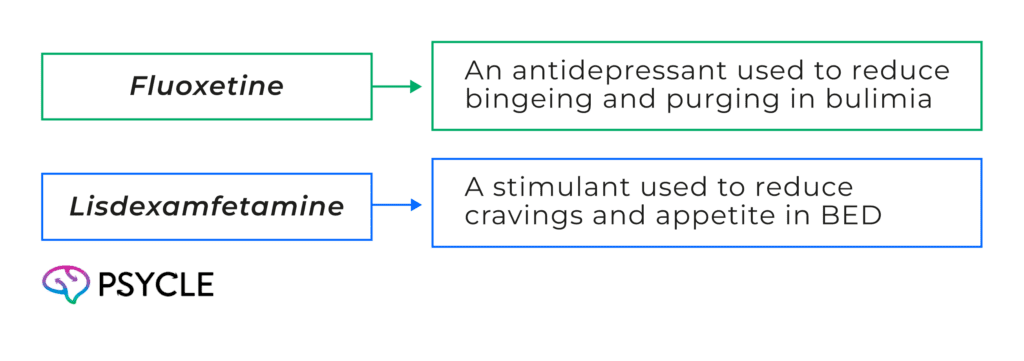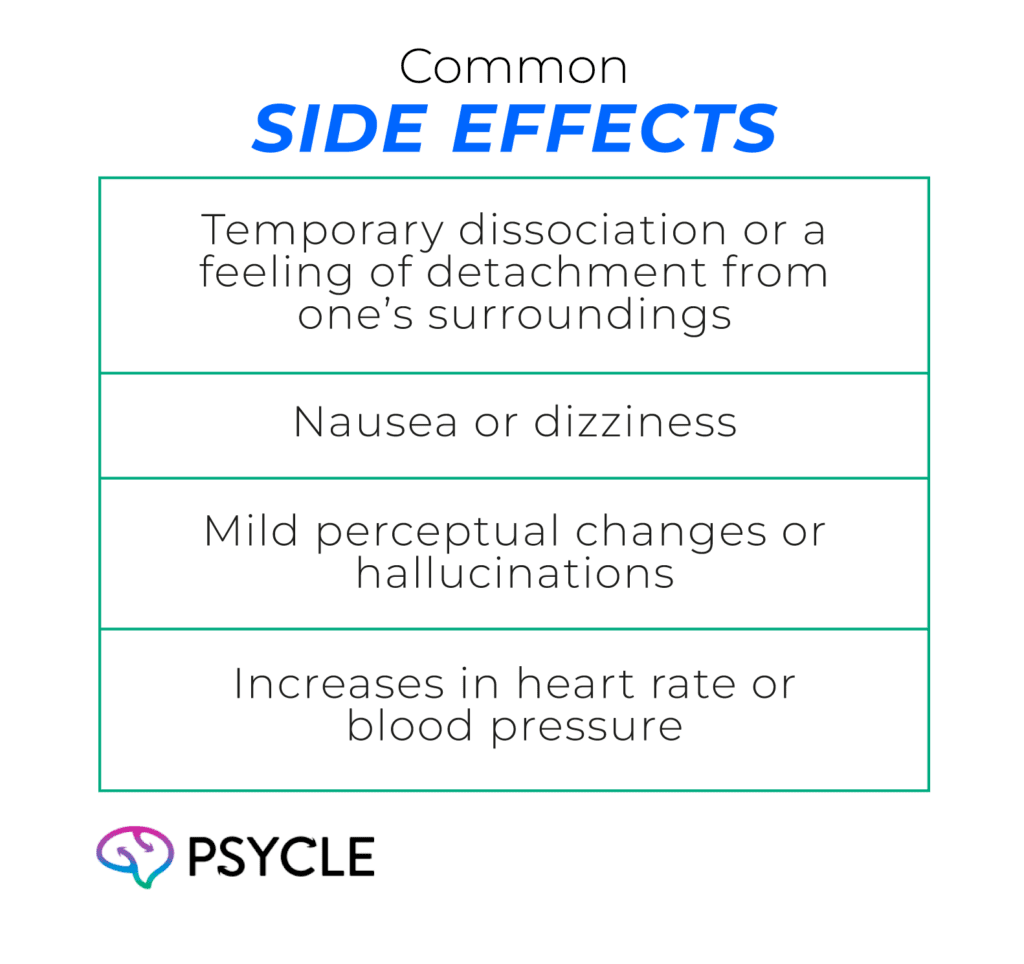Eating disorders represent a complex category of mental health conditions, affecting millions of individuals globally. These illnesses are often persistent, difficult to treat, and associated with significant medical and psychological complications.
Traditional interventions like therapy and medication can be helpful, but they don’t always lead to lasting recovery. Many individuals struggle with repeated relapses over many years. However, ketamine therapy offers a novel approach.
In this article, we’ll discuss how ketamine could break the cycle of long-standing eating disorders, including the science, evidence, and potential risks.
Key Takeaways
- Eating disorders are complex, multifactorial conditions that often prove resistant to traditional treatment methods.
- Ketamine, a medication originally used as an anesthetic, has shown promise in treating various psychiatric conditions, including mood and anxiety disorders.
- Ketamine’s mechanism of action involves neuroplasticity, making it potentially beneficial in disrupting the rigid thought patterns seen in eating disorders.
- Early evidence, especially in individuals with anorexia nervosa, suggests that ketamine may reduce symptoms of depression, anxiety, and obsessive thinking.
- Ketamine therapy is generally safe when administered under medical supervision, although special care is needed for medically compromised patients.
- Compared to conventional treatments, ketamine acts more rapidly and may be particularly useful as an adjunctive therapy in complex or treatment-resistant cases.
- More research is needed to establish ketamine’s long-term effectiveness and safety.
A Closer Look at Eating Disorders
Eating disorders include a spectrum of conditions marked by disruptive thoughts and behaviours associated with food. The most recognized types include:
- Anorexia nervosa: Characterized by severe food restriction, intense fear of weight gain, and a distorted perception of body image.
- Bulimia nervosa: Characterized by recurrent episodes of binge eating followed by compensatory behaviors such as purging, fasting, or excessive exercise.
- Binge eating disorder (BED): Involves recurrent episodes of excessive food intake without purging, often accompanied by guilt and loss of control.
Common traits among affected individuals include perfectionism, emotional dysregulation, anxiety, and obsessive thinking. Medically, people can experience a range of issues, but these commonly include problems with the gut and heart.
How Are Eating Disorders Treated?
Each eating disorder is unique, and different individuals require different treatment approaches. While individuals with anorexia often require structured weight restoration programs, those with BED might benefit more from weight management support.
However, across all types, psychotherapy plays an essential role in helping people manage the emotional distress associated with eating disorders. Cognitive-behavioral therapy (CBT) is one of the most common forms of psychotherapy for eating disorder treatment. This approach helps people recognize triggers and change unhealthy thoughts and behaviours around food and exercise.
In severe cases, medication may be prescribed. To date, there are only two FDA-approved medications for eating disorders:

Despite available treatments, many individuals don’t recover from eating disorders. In an online survey of 387 patients with anorexia, only 21% had full recovery after conventional therapies.
Psychotherapy on its own is limited because it requires patients to be consistently engaged, motivated for change, and emotionally capable of confronting distressing thoughts and behaviors. Medications can be effective, but they don’t work for everyone and can have negative side effects.
Ketamine’s Psychiatric Potential
Originally developed as an anesthetic in the 1960s, ketamine has more recently emerged as a powerful mental health treatment. Ketamine therapy is mostly used to treat depression when other therapies haven’t worked. However, an increasing number of clinics are providing ketamine for eating disorder treatment.
Biological Effects
Brain scans show that people with eating disorders often have changes in areas linked to reward and decision-making, like the prefrontal cortex and striatum. When these areas don’t work properly, it can lead to harmful patterns like strict dieting or binge eating. Ketamine may help by affecting activity in these parts of the brain, which could reduce the urge to repeat these behaviors.
Additionally, ketamine can alter functional connectivity—the way different brain regions communicate with each other. These changes may help individuals “break free” from rigid, negative thought patterns, making it easier to overcome the anxiety and ruminating thoughts associated with having an eating disorder.
Psychological Impact
Eating disorders frequently co-occur with psychiatric conditions such as depression, anxiety, and obsessive-compulsive disorder (OCD). These challenges can exacerbate eating disorder symptoms and hinder treatment progress. Ketamine has demonstrated rapid-acting, powerful benefits in treating these disorders, potentially contributing to overall healing.
Evidence for the Benefits of Ketamine in Eating Disorder Treatment
While there are currently no clinical trials on ketamine and eating disorders, several anecdotal and case reports highlight the potential benefits of this therapy.
For instance, in one case report, a woman with severe anorexia—who hadn’t responded to traditional therapies–experienced significant relief after a series of IV ketamine infusions. Her depression was also markedly reduced after treatment. In a case series of five individuals with eating disorders, ketamine notably reduced psychological distress associated with the condition by the end of treatment.
Moreover, several clinical trials show that ketamine has significant benefits in treating OCD, which has overlapping symptoms and mechanisms as eating disorders. Ketamine can rapidly reduce OCD symptoms, including in individuals who have been previously non-responsive to treatment.
While there’s evidence to support its use, there’s a need for large studies to find out the long-term effectiveness and safety of ketamine when it comes to eating disorder treatment.
Safety Considerations for Ketamine Use in Eating Disorders
When administered in a clinical setting under professional supervision, ketamine is generally considered safe. However, certain side effects can occur, including:

These effects are typically short-lived and mild. However, it’s possible they are more pronounced in individuals who are significantly underweight. Being severely overweight or underweight can also increase the risk of heart complications, and so ketamine may be too risky for people whose blood pressure and heart rate have been significantly affected.
For this reason, it’s essential that individuals undergo a thorough medical assessment before ketamine treatment to make sure that it’s safe and appropriate.
Holistic Ketamine Treatment Approaches
Ketamine offers a fundamentally different approach from CBT and medication. Its rapid onset of action can be especially valuable in cases where time-sensitive symptom relief is needed, such as severe depression or suicidal ideation.
Ketamine’s ability to increase flexible thinking and reduce emotional challenges could make it easier for people to engage in talk therapy. On the converse, therapies like CBT can help make the most of ketamine’s neuroplastic effects.
As such, for long-term recovery, ketamine should be integrated into a holistic treatment plan, which may include psychotherapy, nutritional support, and medical support, if necessary. Having a healthy lifestyle, making positive social connections, and engaging in self-care are also essential factors for long-term recovery from any mental health disorder.
FAQs
How Quickly Does Ketamine Work for Eating Disorder Symptoms?
Some people report improvements in mood, anxiety, and eating disorder symptoms within hours or days of treatment, while others may need several sessions. The effects can vary depending on the individual and the severity of the disorder.
Is Ketamine a Cure for Eating Disorders?
No, ketamine is not a cure. It can help reduce certain symptoms and improve mood, but it works best as part of a broader treatment plan that includes therapy, nutritional support, and medical care.
Sources
- https://pmc.ncbi.nlm.nih.gov/articles/PMC8963252/
- https://jeatdisord.biomedcentral.com/articles/10.1186/s40337-022-00588-9
- https://jeatdisord.biomedcentral.com/articles/10.1186/s40337-024-01039-3
- https://pmc.ncbi.nlm.nih.gov/articles/PMC8963252/

